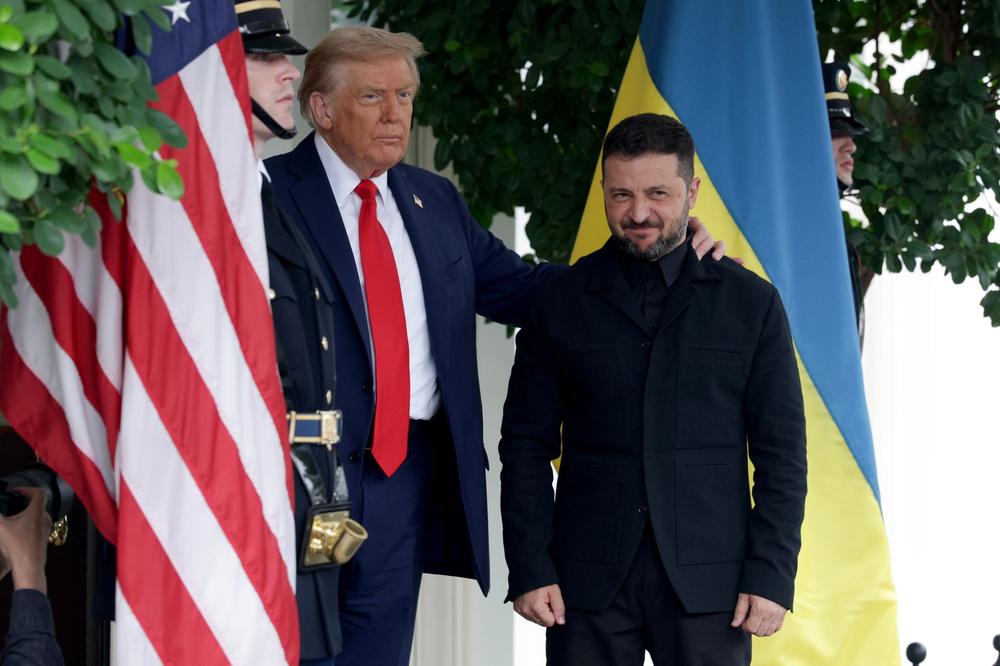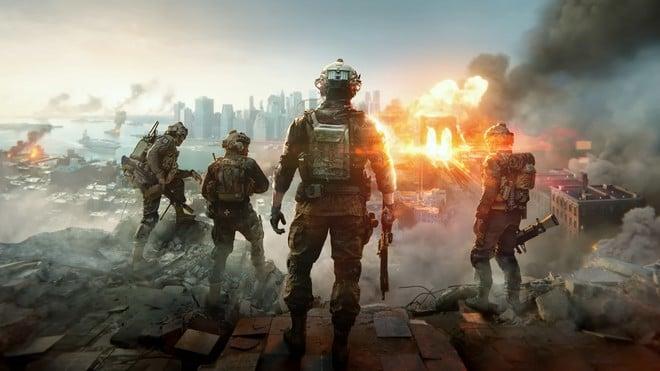When President Volodymyr Zelensky joined U.S. President Donald Trump at the White House on Aug. 18, the positive mood between the leaders stood in stark contrast to their disastrous encounter in February in the same spot.
This shift alone was seen as a victory for Ukraine — offering many of its citizens and allies relief, though the meeting itself was largely inconclusive and failed to secure concrete decisions on the security guarantees and the ceasefire that Ukraine has pushed for.
"I think it's impressive how different the mood and the relationship between Zelensky and Trump are this time," said Kristine Berzina, managing director of Geostrategy North at the D.C.-based think tank German Marshall Fund.
"There was a lack of tension in the room and a comfort that Zelensky was espousing. Rather than coming to Washington to indicate the dire nature of the situation, he instead presented a much more relaxed and friendly air."
Another strong contrast with the previous meeting between the two was the presence of an impressive delegation of European leaders this time, who rearranged their schedules on short notice to back Ukraine's head of state in the meeting with Trump.
Charly Salonius-Pasternak, lead researcher at the Center on U.S. Politics and Power at the Finnish Institute of International Affairs, described the united front by the European delegation as "a step or two forward" with hope of more future progress.
"From a European perspective, while it seemed kind of thin — there wasn't a ceasefire, which everyone talked about the necessity for — they all showed up," said Salonius-Pasternak. "They all were saying the same thing in slightly different ways. So I would say it was much better than we've seen in a while."
Hot on the heels of the Putin-Trump Alaska Meeting
Zelensky arrived at the White House just two days after Trump and Russian President Vladimir Putin met in Alaska, the first time the Russian leader was invited to a Western country since his full-scale invasion of Ukraine began in 2022, and his first invitation to the U.S. in a decade.
Russia’s media heralded the Alaska meeting — in which Putin was greeted with a red carpet rolled out before his feet and warm welcomes from Trump — as an end to the country’s international isolation.
While Trump headed into the Alaska meeting promising severe sanctions against Moscow if a peace deal wasn’t reached, he changed his tune after meeting with the Russian leader.
There were no mentions of additional pressures on Russia afterward. Instead, Trump told Fox News after the meeting that the two sides had "largely agreed" on territorial swaps and security guarantees for Ukraine, raising alarms in Kyiv and across European capitals.
Zelensky has firmly rejected handing over any Ukrainian land throughout the peace process, reiterating again the day before he arrived in Washington that Ukraine’s constitution does not allow for any territorial concessions or land swaps.
Following his meeting with Trump, Zelensky told reporters, "The question of territory is a question that we will leave between me and Putin. Security guarantees will probably be negotiated with our partners."
Olena Hubanova, co-head of the nonprofit Helping to Leave, which works to evacuate and reintegrate Ukrainians displaced by war, expressed hope that international leaders wouldn't lose sight of the reality for those in occupied territories. She said she hoped future discussions would include a humanitarian corridor allowing citizens in occupied territories to return to territory controlled by Ukraine's government.
"Our thoughts are not only about territories, but also about people in these territories," Hubanova said. "Families with children, the elderly, people with disabilities, and others should be able to leave without paying huge amounts of money and without having to travel a difficult path."
Cautious optimism and frustrated disappointment
For Inna Sovsun, a lawmaker from Ukraine's opposition Holos Party, the focus at the meeting on providing security guarantees for Ukraine was a somewhat positive signal.
"What reassured me is that now we're clearly hearing words about security guarantees for Ukraine," she said. "The Europeans insisted on this, as did (NATO Secretary General Mark) Rutte, and everyone very carefully thanked Trump for being willing to get involved."
"Again, there are no specifics yet, so we can't say whether these will be sufficient security guarantees for Ukraine. But the very fact that they are being discussed is, of course, already a step forward."
"We'll give them (Ukraine) very good protection, very good security."
In response to questions from reporters about security guarantees, Trump said, "We'll give them (Ukraine) very good protection, very good security," without providing specifics.
Perhaps the biggest news to come out of the meeting was the potential for trilateral talks, which both Zelensky and Trump signaled an openness to having.
German Chancellor Friedrich Merz, who was present for the meetings in D.C., said that a meeting between Zelensky and Putin could happen as soon as within two weeks.
But for some Ukrainians, the outcome of the meeting — or lack of outcome — was a source of deep disappointment rather than hope.
"The fact that so many European leaders joined on short notice speaks volumes," said Olena Halushka, co-founder of the International Center for Ukrainian Victory, "but Ukraine’s partners still operate within terms dictated by Russia — they avoid speaking of Russia’s defeat, while 'painful concessions' always center only on what Ukraine must give up."
"Instead of real guarantees, vague alternatives are being invented — with NATO membership kept off the table.
"More summits with Putin won’t stop the war. Arming Ukraine to the teeth and crushing Russia’s war machine can," she added.

 Intel potenzia l'AI locale sui Core Ultra con l'allocazione manuale della memoria GPU
Intel potenzia l'AI locale sui Core Ultra con l'allocazione manuale della memoria GPU